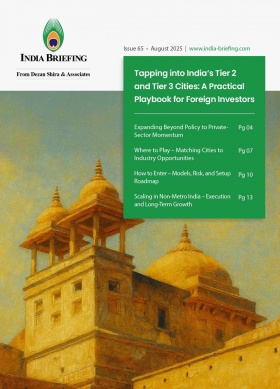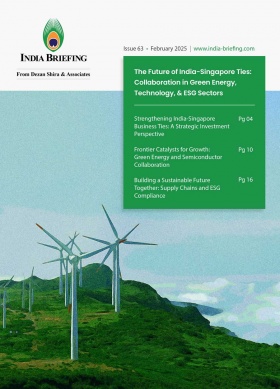India Public Holidays 2025: Official Calendar and Business Planning Guide
India’s official public holiday calendar for 2025 includes mandatory Gazetted holidays, optional Restricted holidays, and numerous state-specific observances. All companies must observe three national holidays – Republic Day (Jan 26), Independence Day (Aug 15), and Gandhi Jayanti (Oct 2). Generally, organizations should also plan for any designated election days, which are paid holidays for registered voters. Businesses should plan operations, payroll, and employee schedules around these dates for smooth functioning.
Managing operations across multiple states? Our specialists can help you structure compliant holiday policies and optimize workforce planning. Contact us at: India@dezshira.com.
Why holiday planning matters for businesses in India
Strategic holiday planning is a critical component of business operations in India, where the diversity of festivals, regional observances, and state-specific public holidays can significantly influence workforce availability and commercial activity. Companies that proactively align their operations with the national and local holiday calendar gain a competitive advantage by minimizing disruption, maintaining productivity, and enhancing employee morale.
For multinational companies and foreign employers, understanding these dynamics is especially important. India’s workforce is culturally and regionally diverse, and many employees place high importance on celebrating traditional festivals with their families. Offering flexibility through restricted holidays or accommodating region-specific observances not only boosts employee satisfaction and retention but also strengthens a company’s reputation as an inclusive and culturally aware employer.
Operationally, well-planned holiday schedules allow organizations to allocate resources more effectively – from workforce deployment and project timelines to inventory management and customer support planning. Sectors like manufacturing, logistics, and retail often see fluctuating demand patterns around major holidays, while service industries may need to coordinate closely with client calendars to avoid delivery delays.
Moreover, understanding the official holiday calendar is essential for compliance. Certain holidays, including Republic Day, Independence Day, and Gandhi Jayanti, are mandated under the National and Festival Holidays Act, requiring business closures or prior authorization for operations. Non-compliance can lead to regulatory penalties and reputational risk.
In short, holiday planning is not merely an HR exercise – it is a strategic business function that underpins operational continuity, workforce engagement, legal compliance, and market responsiveness. Organizations that treat holiday scheduling as part of their annual business planning process are better positioned to manage costs, meet delivery commitments, and sustain long-term growth in the Indian market.
Public holiday categories: Gazetted, restricted, and state holidays
India’s official public holiday calendar is categorized into three types: Gazetted, Restricted, and holidays specific to individual states and union territories. Managing the country’s diverse holiday schedule can be challenging, especially for foreign HR managers, as central and state governments account for the cultural and regional diversity of over 1.42 billion people across 28 states and 8 union territories.
In India, many companies close their offices on Gazetted holidays and offer employees a selection of optional holidays, allowing them to choose non-Gazetted holidays to observe. Some businesses, however, align their holiday schedules with those set by the management of their office building.
Managing holiday schedules and legal requirements
Managing holiday schedules in India remains flexible, with most companies offering between 8 and 14 public holidays based on historical practices, industry standards, and state-specific regulations. Companies interacting with state or government bodies must follow the respective official holiday calendars. For instance, government offices in the National Capital Territory of Delhi are expected to observe 17 gazetted holidays in 2025, along with 24 restricted (optional) holidays.
Key employment laws governing holiday entitlements
Holiday entitlements in India are largely regulated by several key laws:
- The Weekly Holidays Act, 1942;
- The Industrial Employment (Standing Orders) Act, 1946;
- The National and Festival Holidays Act, 1963;
- The Negotiable Instruments Act, 1981;
- The Companies Act, 2013; and
- The Shops and Commercial Establishments Act.
Of these, the National & Festival Holidays Act is applicable to all establishments nationwide, mandating closures on three national holidays:
- Republic Day, January 26;
- Independence Day, August 15; and
- Gandhi Jayanti, October 2.
All organizations in India—whether public, private, or multinational—are required to observe these holidays. Those needing to operate on these dates must obtain prior approval from the relevant authorities.
List of official gazetted holidays in India 2025
The following list of 2025 holidays in India is based on the circular issued by the Ministry of Personnel, Public Grievances, and Pensions.
|
List of Public Holidays in India in 2025 |
||
|
Month |
Date and day |
Gazette holiday |
|
January |
26 (Sunday) |
Republic Day |
|
February |
26 (Wednesday) |
Maha Shivratri |
|
March |
14 (Friday) |
Holi |
|
31 (Monday) |
Id-ul-Fitr |
|
|
April |
10 (Thursday) |
Mahavir Jayanti |
|
18 (Friday) |
Good Friday |
|
|
May |
12 (Monday) |
Budhh Purnima |
|
June |
7 (Saturday) |
Id-ul-Zuha (Bakrid) |
|
July |
6 (Sunday) |
Muharram |
|
August |
15 (Friday) |
Independence Day |
|
16 (Saturday) |
Janmashtami |
|
|
September |
5 (Friday) |
Milad-un-Nabi (Id-e-Milad) |
|
October |
2 (Thursday) |
Gandhi Jayanti |
|
2 (Thursday) |
Dusshera |
|
|
20 (Monday) |
Diwali (Deepavali) |
|
|
November |
5 (Wednesday) |
Guru Nanak’s Birthday |
|
December |
25 (Thursday) |
Christmas Day |
Source: DoPT Circular, National Portal of India
Restricted and optional holidays in India in 2025
|
Non-Gazetted/Restricted Holidays in India in 2025 |
||
|
Month |
Date and day |
Holiday |
|
January |
1 (Wednesday) |
New Year’s Day |
|
6 (Monday) |
Guru Gobind Singh’s Birthday |
|
|
14 (Tuesday) |
Makar Sankranti /Magha Bihu /Pongal |
|
|
February |
2 (Sunday) |
Basant Panchami |
|
12 (Wednesday) |
Guru Ravi Das’s Birthday |
|
|
19 (Wednesday) |
Shivaji Jayanti |
|
|
23 (Sunday) |
Birthday of Swami Dayananda Saraswati |
|
|
March |
13 (Thursday) |
Holika Dahan |
|
14 (Friday) |
Dolyatra |
|
|
April |
16 (Sunday) |
Ram Navami |
|
May |
– |
|
|
June |
– |
|
|
July |
– |
|
|
August |
15 (Friday) |
Janmashtami (Smarta) |
|
27 (Wednesday) |
Ganesh Chaturthi/Vinayaka Chaturthi |
|
|
September |
5 (Friday) |
Onam |
|
29 (Monday) |
Dussehra (Saptami) |
|
|
30 (Tuesday) |
Dussehra (Mahashtami) |
|
|
October |
1 (Wednesday) |
Dussehra (Mahanavmi) |
|
7 (Tuesday) |
Maharishi Valmiki’s Birthday |
|
|
10 (Friday) |
Karaka Chaturthi (Karwa Chouth) |
|
|
20 (Monday) |
Naraka Chaturdasi |
|
|
22 (Wednesday) |
Govardhan Puja |
|
|
23 (Thursday) |
Bhai Duj |
|
|
28 (Tuesday) |
Pratihar Shashthi or Surya Shashthi (Chhat Puja) |
|
|
November |
24 (Monday) |
Guru Teg Bahadur’s Martyrdom Day |
|
December |
24 (Wednesday) |
Christmas Eve |
Source: DOPT, The Indian Express
State-wise and union territory holidays in India
The list of state and union territory holidays is quite large. Please click here – https://www.india.gov.in/state-and-ut-holiday-calendar – to review local holidays that apply to your place of business.
Understanding ‘dry days’ in India
In addition to office closures, governments in the state and union territories often observe “dry days” or days when the sale of alcohol is not permitted on Gazetted, state, and union territory holidays. Dry days also routinely occur on local election dates.
During the course of the year, local governments may declare additional or fewer dry days at its discretion.
(For India’s Public Holidays in 2024, click here.)
About Us India Briefing is one of five regional publications under the Asia Briefing brand. It is supported by Dezan Shira & Associates, a pan-Asia, multi-disciplinary professional services firm that assists foreign investors throughout Asia, including through offices in Delhi, Mumbai, and Bengaluru in India. Dezan Shira & Associates also maintains offices or has alliance partners assisting foreign investors in China, Hong Kong SAR, Vietnam, Indonesia, Singapore, Malaysia, Mongolia, Dubai (UAE), Japan, South Korea, Nepal, The Philippines, Sri Lanka, Thailand, Italy, Germany, Bangladesh, Australia, United States, and United Kingdom and Ireland. For a complimentary subscription to India Briefing’s content products, please click here. For support with establishing a business in India or for assistance in analyzing and entering markets, please contact the firm at india@dezshira.com or visit our website at www.dezshira.com.
- Previous Article Structuring an International Manufacturing Agreement and Advisory for Foreign SMEs in India
- Next Article India’s Trade and Investment Ties with the Commonwealth of Independent States













